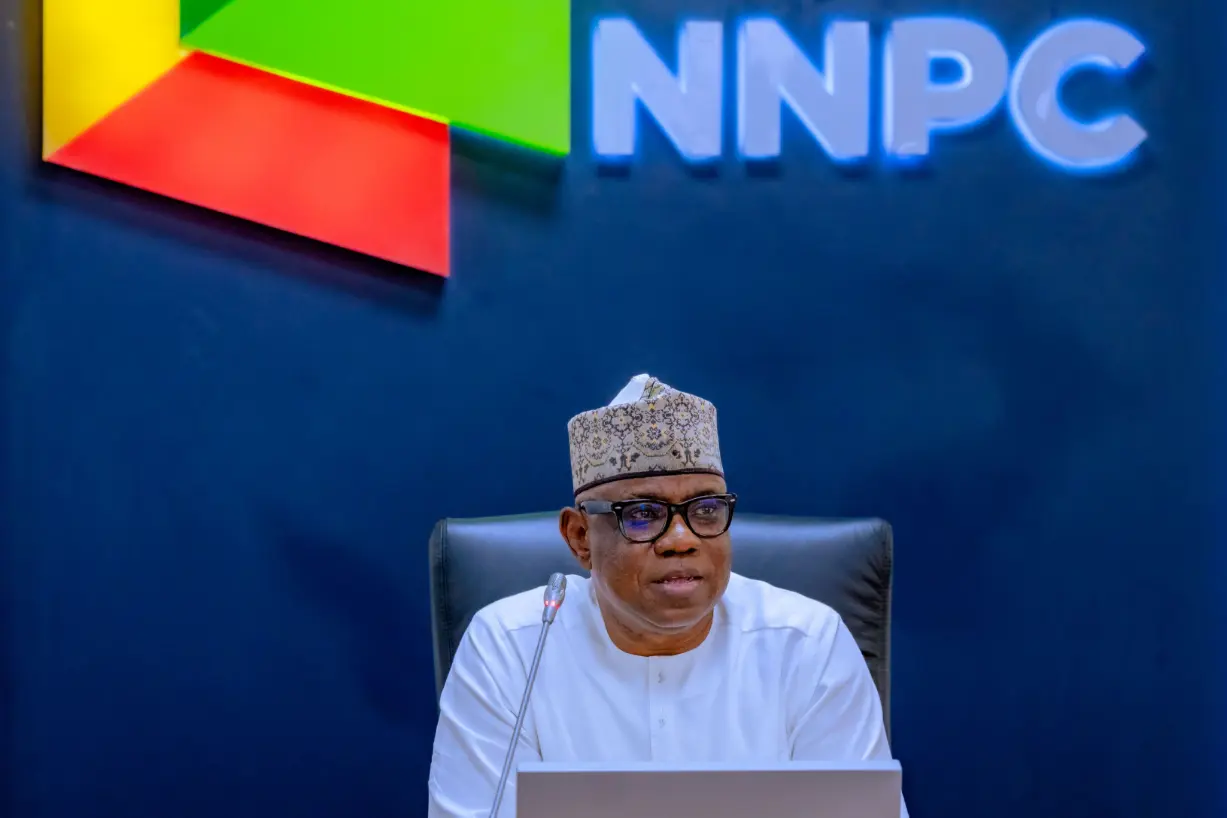When Bashir Bayo Ojulari was appointed Group Chief Executive Officer (GCEO) of the Nigerian National Petroleum Company Limited (NNPCL) in April 2025, expectations were set high. Known for his decades-long oil and gas career from engineering roles in deepwater projects to high-profile corporate transactions Ojulari was seen as the steady hand capable of steering Nigeria’s state oil giant into a new era.
His mandate was ambitious: reposition NNPCL from a traditional national oil company into a fully integrated oil conglomerate, capable of competing with regional and international players across upstream, midstream, downstream and petrochemicals.
Yet, barely months into his tenure, that vision is being tested not only by the scale of the transformation but also by political crosscurrents, public scrutiny, and the deep-rooted complexities of Nigeria’s oil sector.
Ojulari’s reform agenda is bold. He has outlined plans to centralise strategic portfolio planning, accelerate refinery rehabilitation, expand midstream infrastructure, and monetise Nigeria’s vast gas reserves. The ultimate goal is to make NNPCL a diversified energy powerhouse that attracts global capital, manages commercial subsidiaries efficiently, and delivers shareholder value in this case, the Nigerian people.
But delivering such an agenda within Nigeria’s political economy is a high-wire act. In the months following his appointment, media reports from outlets such as Vanguard, TheCable, and PRNigeria News have pointed to institutional resistance inside NNPCL and political pushback from external stakeholders.
From unverified resignation rumours to op-eds urging “political tact” in managing change, the attention on Ojulari has been intense. For a company as strategically significant as NNPCL, even minor boardroom tensions quickly become matters of national debate.
Industry analysts agree: momentum is everything. Without demonstrable early wins, even the most promising reform agendas can lose steam. According to The Guardian Nigeria and Daily Trust, stakeholders are watching closely for specific deliverables within the next 12–24 months.
These includes:
Refinery Commercialisation: securing and closing deals for rehabilitated refineries to operate on a commercially sustainable basis.
Joint Ventures (JVs): signing high-value upstream and midstream partnerships that bring in capital and technology.
Financing Packages: raising large-scale funding to support expansion in gas, pipelines, and petrochemicals.
Each of these would signal that NNPCL’s transformation is not just a rebranding exercise but a structural shift toward profitability and competitiveness.
Supporters of Ojulari argue that he is uniquely positioned to deliver. Before his NNPCL role, he spent decades at Shell, leading complex deepwater projects and navigating high-stakes negotiations. Later, in the private sector, he successfully structured multi-party consortium deals, skills that will be critical as NNPCL courts international investors and negotiates joint venture agreements.
“He combines technical depth with commercial pragmatism,” said one industry insider familiar with his work. “That’s the blend you need to move a national oil company into the realm of a global player.”
This blend of skills is also essential for one of Ojulari’s less visible but equally important goals — overhauling NNPCL’s internal culture. Moving from a bureaucratic, state-driven organisation to a commercially agile conglomerate will require a shift in governance, performance metrics, and operational accountability.
NNPCL’s transformation is more than a corporate restructuring; it is central to Nigeria’s broader economic strategy. Oil still accounts for the majority of the country’s export revenue and a significant share of government income.
A commercially competitive NNPCL could:
Reduce reliance on imported refined products by making Nigeria a refining hub.
Expand gas monetisation to supply domestic industries and regional power projects.
Build downstream and petrochemical capacity to diversify revenue streams.
Create new jobs in engineering, operations, and energy services.
However, failure to deliver could reinforce investor scepticism, delay critical energy infrastructure, and leave Nigeria vulnerable to volatile global oil markets.
Transforming NNPCL requires navigating a web of political, regulatory, and industry interests. The company’s dual identity both as a commercial entity and a custodian of national resources creates inherent tensions.
Ojulari’s task is to align federal policy with commercial imperatives, a challenge made harder by entrenched stakeholders who benefit from the status quo. Past reform attempts have stalled under political pressure or been undermined by inconsistent policy signals.
“Oil sector reform in Nigeria has always been a blend of strategy and politics,” notes an analyst with an Abuja-based energy consultancy. “Ojulari must build coalitions within government, the private sector, and international partners to avoid becoming isolated.”
Beyond boardroom negotiations and policy alignment, Ojulari faces a public relations test. For ordinary Nigerians, NNPCL is often associated with fuel scarcity, subsidy debates, and refinery failures. Changing that perception will require more than technical success it will require visible, relatable progress.
Town hall meetings, industry forums, and strategic media engagements have been part of his early outreach, aiming to demonstrate transparency and a commitment to stakeholder engagement. But scepticism remains, especially in communities directly impacted by oil operations.
Time is not on Ojulari’s side. Energy transitions globally are accelerating, with growing investor focus on decarbonisation and renewable integration. While Nigeria’s oil and gas resources remain significant, competition for capital is fierce.
The next two years will be decisive. Delivering tangible projects, locking in investment commitments, and institutionalising governance reforms will determine whether NNPCL’s rebrand as an “oil conglomerate” is a marketing slogan or a structural transformation.
The risks are high, but so are the rewards. If successful, Ojulari could leave behind a legacy of turning Nigeria’s national oil company into a commercially competitive, regionally dominant energy group. If not, the transformation effort may be remembered as another ambitious plan stalled by Nigeria’s political and institutional realities.
Bottom line: Bayo Ojulari’s leadership at NNPCL is unfolding as a high-stakes test of vision, skill, and political navigation. The ambition is clear but in Nigeria’s oil sector, ambition alone has never been enough.





